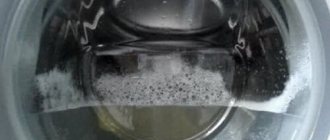One of the rather old urban legends says that you should not mix boiled water with unboiled water for drinking. Among the beliefs about the consequences of drinking such water, there are many options, ranging from poisoning with nausea and vomiting, ending with a decrease in immunity and the development of a number of diseases with their further transition to the category of chronic. No one can provide any objective argumentation as to why all this should happen and what chemical processes take place there.
Is it possible to dilute boiling water with unboiled H2O?
It should be said right away that you can mix boiling water and tap H2O .
A one-time use of the mixture will not affect your well-being in any way. When combined, the boiling effect is neutralized, and the water you drink should be considered raw.
In such a situation, another question is asked: “Is it possible to drink raw water?”, since the very fact of mixing does not produce any effect on the body.
Pros and cons of raw water
Raw water is considered to be water that has not been exposed to temperature. It can be divided into bottled and tap. It differs in composition due to differences in extraction sites and delivery conditions.
This liquid goes through several stages of purification and filtration before it reaches the tap and can be consumed. Tap water has a high concentration of iron and heavy metals.
To rid the liquid of bacteria and infections, it is treated with chlorine, the concentration of which may increase due to passage through the pipes.
The degree of suitability for consumption of the resulting liquid depends on the condition of the pipes leading to the home. If they are old, then the taste of the liquid will be unpleasant, and its composition will be oversaturated with harmful chemical elements.
Bottled water is most often obtained from underground sources and undergoes not only artificial purification, but also natural filtration. For these reasons, such a liquid is considered purer and healthier. It can be consumed, but not in large quantities. However, some people still prefer boiling not only for cooking, but also for drinking.
Why do they say that there is no need to interfere?
The root of this long-standing superstition is difficult to find . It is possible that the myth has an edifying character. In times of lack of running water, people got their drink from wells and rivers. Such water did not even claim to be clean.
Pest microorganisms could actively flourish in the wells. At the bottom of the dug holes, fallen leaves rotted, moss sprouted, and sometimes even the dead remains of small animals were found. Naturally, after boiling, it is not worth diluting purified water so contaminated.
Is it possible to boil water several times?
The main purpose of boiling water is to destroy harmful and pathogenic microorganisms that die at high temperatures. Actually, this is happening for the first time. During the second boiling, water vapor is intensively released: the water evaporates, and the concentration of the mineral component increases. This can be harmful to health, warns the nutritionist.
Lydia:
Water, in addition to minerals, salts, alkaline and acid radicals, contains hydrogen and oxygen atoms. During the process of intense evaporation of water vapor, atomic hydrogen settles to the bottom, increasing the density of the liquid.
Photo: unsplash.com/@ryanjvr98
In addition, during repeated or prolonged boiling, the active chlorine contained in the water reacts with residual organic matter and mineral dissolved substances. What might happen as a result of such a reaction is difficult to predict. Repeated boiling of water leads to an increase in the variations of chemical reactions - their result can be the appearance of carcinogens (they can provoke the development of malignant tumors).
Consequences of mixing
The following scientific (and pseudo-scientific) hypotheses about the harm of the mixture are put forward:
The first concerns the structure of water at the molecular level.
Proponents of the idea of “memory” of water claim that it is able to “remember” situations that happen to it. Consequently, boiling negatively affects the “memory” component. Adherents of this hypothesis are confident in the incompatibility of boiled and raw water due to the heterogeneity of the molecular structure of the mixture.- The next idea concerns salts in water. More knowledgeable people have suggested that mixing raw and boiled water creates a high level of salt concentration in the mixture. Although it has been scientifically confirmed: the concentration increases very slightly and has no effect on the body.
- According to the latter assumption, hot or warm boiled water promotes the growth of bacteria. And if the composition also contains sugar, such an environment is extremely favorable for microorganisms. In fact, protozoa cannot reproduce per second, despite their fertility. It will take a long time for the drink to become harmful to humans.
As practice shows, the proposed hypotheses are not true or are only half true.
Rumors about “dead” water and its harm
One of the most common justifications for the myth is that after boiling water becomes “dead”, and mixing it with “living” raw water does not allow the body to recognize what it is actually being given. Allegedly, in the so-called “dead” water, along with all microorganisms, all beneficial properties and other substances die after boiling. It’s funny, because salts, which are the main beneficial substances dissolved in water, will not disappear when boiled, perhaps only their concentration will decrease slightly. It will not decrease in vitamins, because most likely they simply aren’t there. But the stories about “dead” water are an unsubstantiated legend, which has no scientific confirmation.
Which one is better to choose for drinking?
It is better to drink raw, but filtered water; boiled water has little harm to the body. The main disadvantage is the scale that forms after boiling.
But it is always better to boil the liquid rather than “feed” your body bacteria . The boiling process does not have any colossal consequences.
To get rid of scale, you can additionally strain the water through cheesecloth. After this procedure, boiled water becomes harmless.
Rumors about the harm of water memory
In second place is the theory of water memory, according to which the body can only absorb homogeneous water, and boiled water mixed with unboiled water remains heterogeneous further. There has been talk about the memory of water for quite a long time, but most often it turns out to be nothing more than fiction for a successful fraud with the sale of water charged with success, health and the treatment of certain diseases. We all remember tricks about charging water from the TV screen, but the maximum that could be obtained from such water was the placebo effect.
And so all the main arguments of supporters of the veracity of the legend turned out to be unconfirmed from a scientific point of view and unconvincing even from the point of view of simple logic. There is no confirmation, only beliefs that this cannot be done. Now let's turn to the logical side of the question of whether it is possible to use mixed boiled water with unboiled water.
Is it dangerous to mix “raw” water with boiled water?
It is believed that boiled water should not be mixed with purified tap water - this can lead to diarrhea and abdominal pain. What is this judgment based on, and is it correct?
It is believed that the opinion about the inadmissibility of mixing “raw” and boiled water came to us from ancient times. Back then, people used lake and river water, which was brought to a boil over a fire before use. Water before boiling was considered “raw”. In this case, mixing boiled and “raw” water was indeed dangerous, because unboiled water from a stream, river or lake may contain pathogenic microorganisms or parasites.
Boiling allows you to kill most of the bacteria and worms, but if the water that has undergone such treatment is mixed with “raw” water, the entire effect will be lost. Today, water flowing from our taps has already been disinfected in the purification system. Many people pass it through a filter - this allows them to remove elements and chemical compounds dissolved in the liquid, the accumulation of which can negatively affect the body.
Most often, such filtered water is boiled before use. This allows you to remove even more microorganisms from it. Today, the ancient rule about the inadmissibility of mixing “raw” and boiled water has been transformed: now it is believed that when boiling water, heavy metals and salts that usually accumulate in the body “leave”, therefore it is healthier than filtered water.
Why not?
According to legend, if you mix raw and boiled water, the following can happen:
A number of theories explain the harm to health. Let's look at the main ones:
- “The body does not understand what is being given to it, because boiled water is dead, and unboiled water is alive.” It is believed that boiling neutralizes all beneficial substances. But in reality, raw water contains mainly salts that are useful. After boiling, their concentration decreases slightly, but they do not disappear completely. That is, the statement about “dead” water is a myth.
- “Raw water has memory, but boiled water does not. When mixed, the liquid becomes heterogeneous and harmful.” Conversations about memory have been going on for quite some time. But no evidence of this was found. Often behind them lies a banal scam involving the sale of water charged with success (luck, against certain diseases, etc.).
- “The mixed water has a salt composition that can cause diarrhea.” A certain composition of salts can indeed act as a laxative. But in ordinary water, salts cannot combine in this way.
- “Once in disinfected boiled water, microorganisms from raw water multiply at a catastrophic rate.” In fact, the growth of bacteria is influenced by heat and nutrient medium (sugars). But even under favorable conditions, infection will take some time. Warm sweet tea will spoil in about 4 hours if you add unboiled water.
Most likely, the warning came from ancient times, when drinking water was collected from rivers and wells. It was dangerous to consume it without boiling. The liquid was disinfected by boiling. Adding a raw portion neutralized the entire effect - the water was again filled with microorganisms and could cause intestinal upset or infection.
When should you not mix?
There are disadvantages to mixing raw and boiled water, but they are easy to avoid. If you boil a liquid to disinfect it, then adding raw water will waste all your work. In many ways, the result of combining “living” water and “dead” water depends on the quality of the raw liquid. For example, if you know that the water flowing from the tap is not of the best quality, even a couple of drops will spoil the purified boiled water.
Why should you consult a doctor to drink mineral water?
Water is considered mineral if it is extracted from some source in the bowels of the earth. Mineral water is divided into table water, medicinal water and medicinal water.
Dining room
has a low degree of mineralization - less than 1 g per liter. It contains few biologically active substances and mineral salts. Therefore, anyone can drink it as much as they want.
A simple secret: water on an empty stomach strengthens the body. But it is important to drink correctly
A risky experiment. What happens to the body if you don’t drink water for three days?
Medical dining room
mineral water, which has a higher mineralization - from 1-10 g per liter. And a relatively healthy person can drink this water in courses of no more than three weeks in a row.
Medicinal
Mineral waters are prescribed only by a doctor and only according to indications. For example, for the purpose of correction, that is, if a person has a disease.
Is it possible to mix boiled water with unboiled water?
Sacramental problem: is it possible to mix filtered (or bottled water) with boiling water? The same thing: what if you boil the same filtered water, but do not bring it to a boil a little? Smart people declare the question raised a myth and naively try to introduce microbiological, chemical, parascientific and other explanations here. Unfortunately, for people with delicate guts this is not a myth. Someone can drink water from a peat bog and not suffer at all. Famous microbiologists drank a suspension of a culture of Vibrio cholerae and after a day they were healthy, and after two days they were already completely healthy.
What could be the consequences if you dilute boiled water with raw water?
People say that if you mix boiled and tap water, you cannot avoid negative consequences. Symptoms such as diarrhea, nausea, vomiting, abdominal pain, exacerbation of chronic ailments as a result of decreased immunity may appear.
This is real, but only under the condition that there were pathogenic microbes or bacteria in the unboiled water; the liquid was dirty or of unknown origin. But if both waters were clean and drinkable, then such things cannot happen.
Conclusion
It is safe to drink boiled water even after it has been diluted raw. This rule applies to water that is safe for humans.
Another myth: in boiled water, bacteria from raw water multiply much faster. Scientists set out to find out if this is true. It turned out that nothing like this actually happens. If this is sweet tea, which is ideal for the life of pathogenic microorganisms, then we can talk about their accelerated rate of reproduction.
Why is it not recommended to dilute boiled water with raw water?
The habitual refusal to dilute boiling water with raw tap water has finally found its explanation. Everyone is afraid of the consequences, but there are no sensible explanations for these actions. It turned out that such a mixture was once considered dangerous to health, but now this myth has been completely debunked.
There is nothing dangerous in adding clean, but not boiling water to the one that was just bubbling on the stove. The result will be simply water with the properties of ordinary raw water, with the mineralization and microflora of the source from which it was collected.
What scientists say about diluting boiling water with raw water
Chemists have studied the issue comprehensively, conducted many laboratory experiments and are finally ready to publish the results of their research. It turned out that ordinary water from the city water supply is no different from the water that has been in the kettle.
The main difference is in the number of microorganisms; in boiled water their number is noticeably smaller. But the metal salts that are present in water are not particularly reduced by boiling; they penetrate into the body in the same way.
The conclusion is simple: if you want to switch to a healthier diet, but the quality of the tap water is not very good, it is useless to boil it, it is better to buy special drinking water.
It is not clear where the belief about the dangers of boiled water came from; it is even claimed that it is dead and the body does not absorb it. Recognizing water depending on the degree of heating is a real myth.
Even though the amount of salts in it is slightly reduced, boiled water also saves you from thirst; it is absorbed and excreted in the same ways as spring water, melted water, and even dew from lotus petals. Water is life, even if it is boiled.
Advice: you shouldn’t believe everything that cunning marketers say and write under any pretext, the scientists’ conclusions are clear: boiled water is no worse.
Common Misconceptions
1. You cannot mix “living” water and “dead” water.
Previously, boiled liquid was considered “dead”, because after exposure to high temperatures there were no useful substances left in it. Raw water was called “living” due to the abundance of minerals. People believed that mixing liquids could cause stomach upset because the water was more difficult to digest. In fact, the composition of the liquid changes slightly, so there is no “conflict”.
2. Water has a memory
An anti-scientific but popular theory. Some people believe that water has a memory that stores "memories" of the liquid's path. After boiling, the structure of water changes, so the memory disappears. But you can’t mix liquids, because they are heterogeneous and hazardous to health. But there is no memory, it is nothing more than a myth.
3. Bacteria grow in mixed waters
Another unlikely theory, since pathogenic microorganisms need a suitable environment to multiply. For example, this will happen if you put sweet tea in the sun and leave it there for half a day. But the liquid, diluted a couple of minutes ago, does not pose any threat to health.











